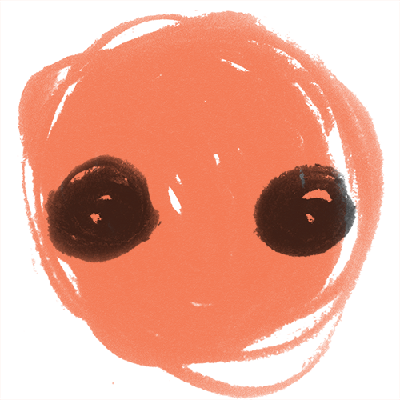You are the victim of a con — one so pernicious that you’ve likely tuned it out despite the fact it’s part of almost every part of your life. It hurts everybody you know in different ways, and it hurts people more based on their socioeconomic status. It pokes and prods and twists millions of little parts of your life, and it’s everywhere, so you have to ignore it, because complaining about it feels futile, like complaining about the weather.
It isn’t. You’re battered by the Rot Economy, and a tech industry that has become so obsessed with growth that you, the paying customer, are a nuisance to be mitigated far more than a participant in an exchange of value. A death cult has taken over the markets, using software as a mechanism to extract value at scale in the pursuit of growth at the cost of user happiness.
These people want everything from you — to control every moment you spend working with them so that you may provide them with more ways to make money, even if doing so doesn’t involve you getting anything else in return. Meta, Amazon, Apple, Microsoft and a majority of tech platforms are at war with the user, and, in the absence of any kind of consistent standards or effective regulations, the entire tech ecosystem has followed suit. A kind of Coalition of the Willing of the worst players in hyper-growth tech capitalism.
Things are being made linearly worse in the pursuit of growth in every aspect of our digital lives, and it’s because everything must grow, at all costs, at all times, unrelentingly, even if it makes the technology we use every day consistently harmful.
This year has, on some level, radicalized me, and today I’m going to explain why. It’s going to be a long one, because I need you to fully grasp the seriousness and widespread nature of the problem.
So close, and yet…
The “market economy” is the death cult. The notion that somehow market forces are inevitable, natural powers is the logical fallacy.
We are so primed to capitalist market thinking that we accept its dogma. As Frederic Jameson said, at this point it is actually easier to imagine the end of the world than the end of capitalism.
It isn’t the “rot economy”; It’s the Economy, Stupid.
I mean, without the end of capitalism, the end of the world is only a few decades away. Even the IPCC report says that we need socialism if we want to stop climate change (and I used “stop” instead of “prevent” for a reason, we’ve even crossed the 1.5°C limit a while ago) and survive as a species.
you, the paying customer

The fediverse is the one halfway viable alternative to the rotten big platforms that has a chance and I continue to be perplexed that Ed Zitron isn’t on it. We’re building the future of social media over here. Maybe that was you back in 2018, giving up after two days when it turned out you didn’t have an instant audience of millions after two days on mastodon. Maybe the problem didn’t seem so urgent back then. Maybe you got a bad first impression for some other reason. Try again. You make the case for it without being part of it. Join the fediverse, Ed.
Bluesky as a whole should also join the fediverse.
Bluesky is by definition one of the things mentioned by the OP, they’re a commercial site, backed by venture capital, which recently received a round of financing on the order of 15 million by a freaking blockchain company, and i remember recently hearing they just plain don’t have a path to profit so it’s the same story as all the others. They ARE going to enshittify sooner or later. Here’s Cory Doctorow on this.
There are ways to mitigate this.
- Interact with software which had more to do with people doing technical work rather than being involved in ‘business’ or ‘employment’.
- Reject the trend of legitimacy and embrace practicality.
- Simply do not co-operate with the entities doing these things. This thing in particular works even in the most hopeless seeming situations. Also, casually disobey.
- Move towards being more and more technically skilled yourself. It does not necessarily have to be with computers, if you prefer not to. You will find yourself not dependent on anything in an absolute manner, and these organisations will lose out on one more user they need to survive—because they work that inefficiently with their already less effective methods of operation.
This year has, on some level, radicalized me …
It’s unusual to run into a story with a line I’d just been thinking about. Also, I really hope the domain is a reference to Bassment Jaxx.
**Avarage reading time of article: 84 minutes, **
AI_Summary:
Ed Zitron’s “Where’s Your Ed At” criticizes the tech industry’s relentless pursuit of growth at the user’s expense. Zitron argues that the digital world has become adversarial, with companies like Meta, Spotify, and Google prioritizing short-term profits over user experience. He describes a “Rot Economy” where constant updates and redesigns frustrate users, degrade product quality, and extract more value—through ads, notifications, and manipulative designs—without giving users anything in return.
Zitron asserts that this creates widespread “low-grade trauma,” as billions are subtly exploited, distracted, and frustrated daily. People wrongly blame themselves for failing to keep up with tech, but the real issue lies in the ecosystem’s exploitative practices. From intrusive ads to chaotic work software, modern digital tools have become hostile, leading to societal stress, decreased well-being, and fractured attention. He calls for a reckoning with the pervasive and harmful ways tech companies interfere in our lives.
The internet has become an exploitative, manipulative, and deeply frustrating environment due to a capitalist system focused solely on growth. Users are bombarded by scams, ads, and misinformation, even on reputable platforms like CNN, which prioritize profit over vetting content. Cheap laptops with underpowered hardware and intrusive operating systems (like Windows S Mode) force users into ecosystems filled with ads and data collection, illustrating the hostile nature of modern computing.
Once online, users face algorithm-driven feeds (e.g., Facebook, YouTube) designed to keep them engaged, regardless of the harm caused. Websites themselves prioritize monetization, cluttering experiences with ads and slow, broken functionality. This hostile environment drives people toward tech giants like Google, Apple, and Meta, which offer “cleaner” but still manipulative digital experiences.
Even essential tools like Gmail, YouTube, and Google Search have degraded, yet users tolerate them because alternatives are often worse. Growth capitalism prioritizes profit over service, pushing companies to exploit users through frustrating and predatory experiences while hiding behind the veneer of convenience.
“Rot Economy” critique - a growth-at-all-costs mindset driven by corporate greed and short-term thinking, which degrades our digital lives. Unlike Cory Doctorow’s “enshittification” theory, which focuses on platform decline, the Rot Economy extends to the entire digital ecosystem, manipulating users, exploiting ignorance, and prioritizing profits over user experience or dignity.
Big tech companies — like Meta, Google, Microsoft, and Apple — are held responsible for turning tools that once connected and empowered people into mechanisms of exploitation. Algorithms, invasive ads, manipulative design, and AI-generated content have eroded trust and polluted the internet, trapping users in a cycle of dodging scams, notifications, and digital debris.
The author emphasizes that individuals are not to blame for struggling with modern technology but are victims of exploitative systems that prioritize growth over stability or ethics. Personal experiences with technology, once transformative and positive, have been soured by these corporations’ harmful decisions, which the author describes as selfish, cruel, and morally wrong.
In conclusion, the author calls for accountability for tech leaders like Sam Altman, Sundar Pichai, Tim Cook, Satya Nadella, and Mark Zuckerberg, condemning their actions as destructive and unrepentant. While they profit, users endure frustration, harm, and manipulation — conditions that society wrongly accepts as “just how things are.”
Continued: deep frustration and anger over the negative impacts of corporate greed, particularly in the tech industry, and the way digital platforms have become exploitative and harmful. The writer describes how systems that once enabled personal growth and expression have been corrupted by managerial figures who prioritize profit over humanity. The writer urges others to recognize the damage being done and to speak out about the individuals and companies responsible for the deterioration of services like social media, search engines, and AI.
They stress the importance of awareness and sharing knowledge about the harmful practices of tech companies, arguing that even small acts of speaking out or explaining the truth can disrupt the status quo and build pressure for change. The text emphasizes solidarity among those affected by the so-called “Rot Economy” and encourages people to reject the manipulative systems in place, urging everyone to hold these entities accountable through collective action and awareness. The writer promises to continue fighting for change in 2025 and invites others to join in the effort.
It hurts everybody you know in different ways, and it hurts people more based on their socioeconomic status. It pokes and prods and twists millions of little parts of your life, and it’s everywhere, so you have to ignore it, because complaining about it feels futile, like complaining about the weather.It isn’t. You’re battered by the Rot Economy, and a tech industry that has become so obsessed with growth that you, the paying customer, are a nuisance to be mitigated far more than a participant in an exchange of value. A death cult has taken over the markets, using software as a mechanism to extract value at scale in the pursuit of growth at the cost of user happiness.
This ‘death cult’ is just ordinary people who take the easy way of forcing others to provide what they cannot do themselves. The commercial system is little more than a convoluted mechanism to fulfill this need. While, of course, not being extremely cruel to the workers because that always has consequences. This rule goes against the very instinct and reason for those radically believing in this system though, and as a result is disregarded in time by people who believe their predecessors who bit more than they could chew were foolish for not merely suffocating the poorer classes even more, in the hope they will work for them out of desperation.
These things have a simple root—it is people being unwilling to bear the burdens and pains for becoming capable of doing what they want to do, and seeing it preferable to push the pains on others instead. The most effective way to deal with it is to disobey and push the burden of pain right back to the cause of problems, rather than take up the pain for either pennies or the promise of easing the pressure, while the majority of the benefit coming from the work you put in goes to others. Push it back, reject it, and push it back again when these persons defiantly cause more problems. They’ll end up toothless and—the horror—with take up some form of technical skill learning to survive.
An organisation without the technically skilled persons to
suffer underwork for them are just a bunch of persons with many desires but no way to fulfill them. All the while the structure of ‘legitimacy’, which forces people’s hand to work for practically achieving nothing, breaks down. People are forced to work hard again if they ever had the idea of simply making others do the work and benefiting from it. In this happening you do not destroy co-operation and business themselves, but only trim these perverted aspects off them.










